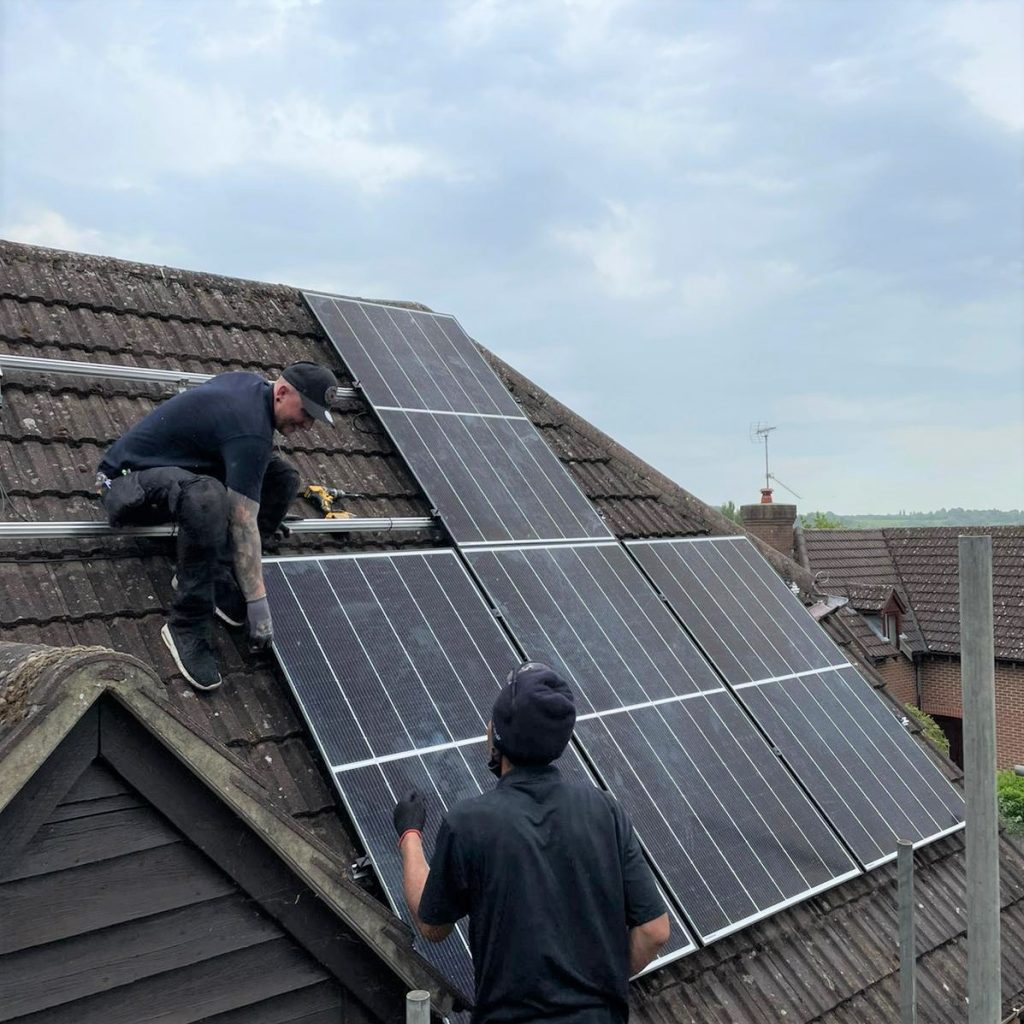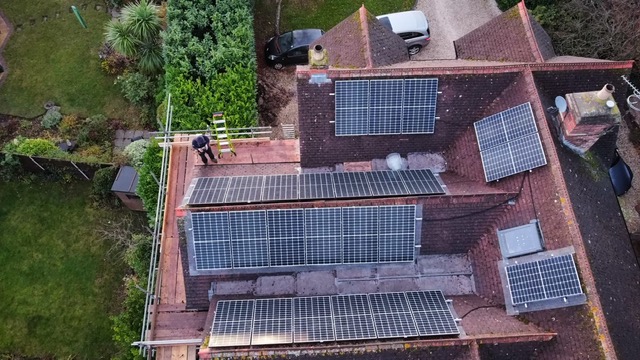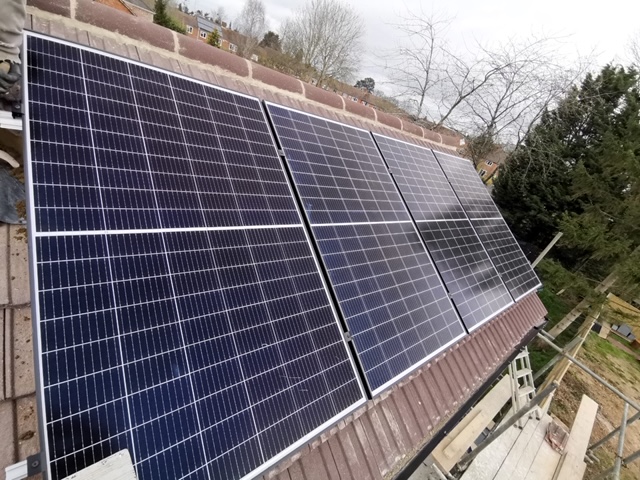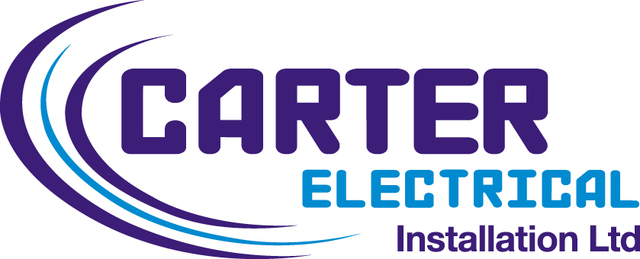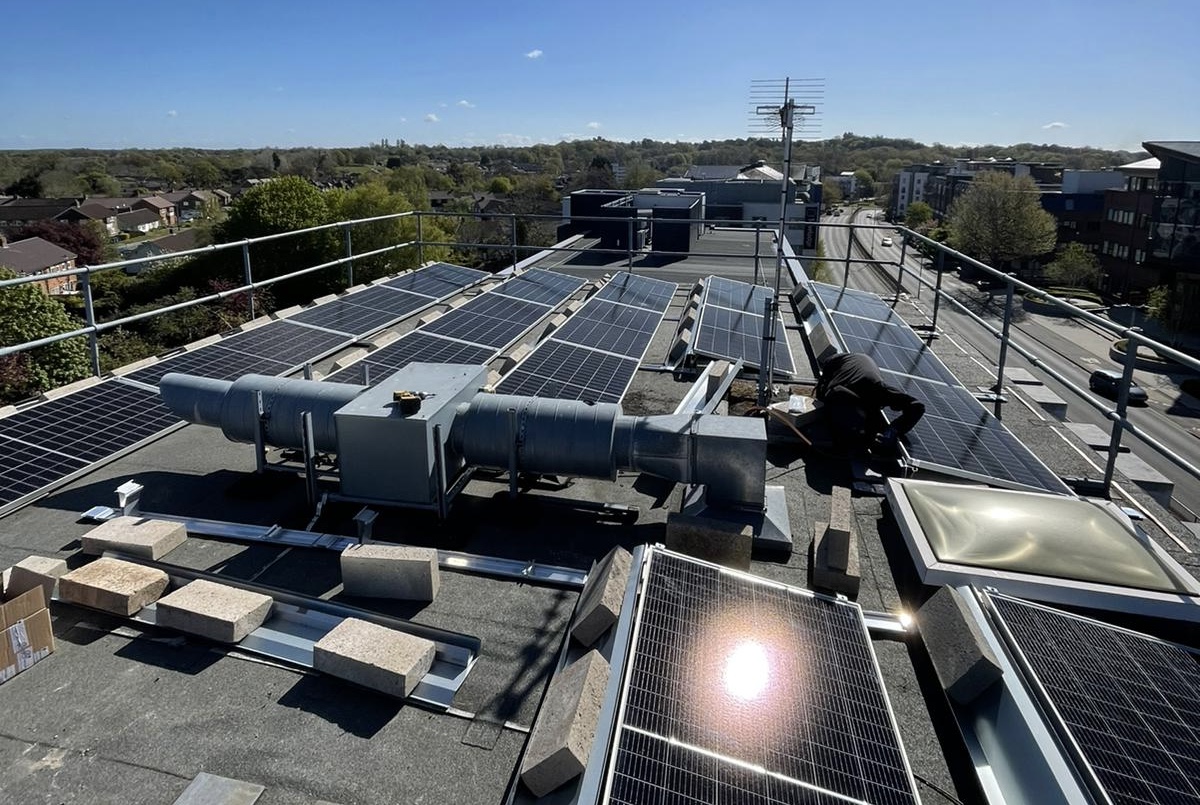How do Solar Panels work?
Frequently Asked Questions
Solar panels are made out of photovoltaic (PV) cells that convert the sun’s energy into electricity.
Photovoltaic cells are sandwiched between layers of semi-conducting materials such as silicon. Each layer has different electronic properties that energise when hit by photons from sunlight, creating an electric field. This is known as the photoelectric effect – and it’s this that creates the current needed to produce electricity.
Solar panels generate a direct current of electricity. This is then passed through an inverter to convert it into an alternating current, which can be fed into the National Grid, or used by the home or business the solar panels are attached to.
What type of panels are available?
Options include: monocrystalline, polycrystalline, hybrid and thin film. Solar panels are typically fitted on top of your existing roof. With new builds we can use recessed solar panels so that they are not so obvious at first sight.
How much will Solar Panels cost?
Solar panel system sizes are measured in kilowatt peaks (kWp). This is the maximum output of your system.
“The most common system size, from our survey of more than 1,000 solar panel owners, was between 3.6-4kWp” Which? Prices are from approximately £1000 per 1kW installed (depending on specifications) Therefore the average cost would be around £4,000.
What else do I need to run the system?
Solar PV panels need an inverter to convert the direct current produced by the panels in to alternating current that is used by the household. Inverters are often situated in lofts, though this can be problematic due to high temperatures experienced during summer months. Most inverters now have internet connection capability, so you can keep an eye on your system using apps or web browsers, even when you’re away. The technology also raises awareness of your energy usage, encouraging you to be more sustainable, and save more money.
Consider a storage battery to store the power that is generated from your solar panels during the day. Storage batteries can also be used to store cheap power during the night. This power could then be used to charge your EV or used back in the house when power demand is high. https://www.powervault.co.uk/
Who Can I trust?
Carter Electrical Installations are a MCS-accredited installation company that installs MCS-certified products. MCS is an industry-led quality assurance scheme, which demonstrates the quality and reliability of approved products and installation companies.
Being MCS certified demonstrates to our customers that we install to the industry-expected level of quality every time. MCS gives you a mark of quality which provides assurance.
We are also a member of the Renewable Energy Consumer Code (RECC). This means that they have agreed to abide by high consumer protection standards. RECC also runs a dispute-resolution process if you have a complaint against an installer registered with it.
What is the Smart Export Guarantee?
The Smart Export Generator (SEG) launched on 1 January 2020 and is a government-backed initiative. The SEG requires some electricity suppliers (SEG Licensees) to pay small-scale generators (SEG Generators) for low-carbon electricity which they export back to the National Grid, providing certain criteria are met.
Anyone with one of the following technology types could benefit from the SEG (provided they meet the rest of the eligibility criteria) up to a capacity of 5MW, or up to 50kW for micro-CHP:
- Solar photovoltaic (solar PV)
- Wind
- Micro combined heat and power (micro-CHP)
- Hydro
- Anaerobic digestion (AD)
These installations must be located in Great Britain.
